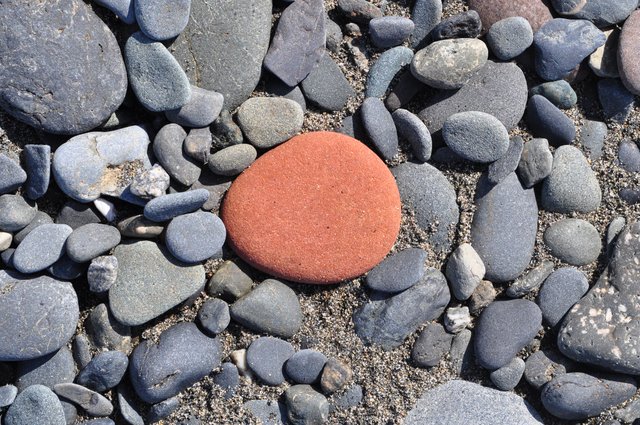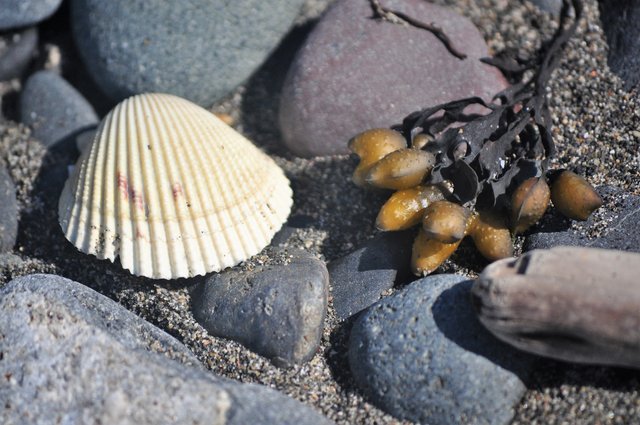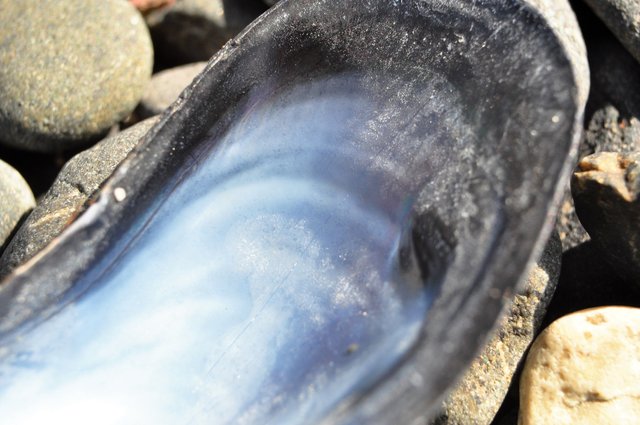Macrophotography--A day at the beach--Rocks and Shells
I love to spend time on the beach with my family exploring the tiny world of the sea. I'm a big lover of the ocean and have spent most of my life living somewhere on its vast shores. However, living in Alaska and the Pacific Northwest I've become much more familiar with the rocky green beaches rather than the tan sandy ones.
In a couple recent posts I shared a some macro photographs taken during a recent family trip to Homer, Alaska to start off our summer. One featured a tiny crab and the other some...ahem...reproductive oceanic plant organs. (What it looks like might surprise you. Ooo, I think I just wrote a good click bait line there.)
I'll be making a longer post about the trip and what I enjoy about Homer soon, but I can't resist enjoying this macro-vacation on fascinating things of the beach for just a little bit longer.

Click image for higher resolution.
Equipment: Nikon D5000, AF-S 18-55mm Nikkor 1:3.5-5.6
Exposure: f/11, 1/500sec, ISO-500
This red rock caught my eye. The variety of stones found on Alaskan beaches is impressive. A geologist could probably spend a whole, gleeful day cataloguing various stones and minerals walking an Alaskan shoreline. The kids love collecting unique ones they find. The contrast of this red rock was very eye catching and I captured this photograph without moving anything. It's mind boggling to think of where these stand-out stones might have come from and how they got here.

Click image for higher resolution.
Equipment: Nikon D5000, AF-S 200mm Nikkor 1:4-5.6
Exposure: f/5.6, 1/800sec, ISO-500
It's also fun combing the beach for shells, especially whole pieces like this one alongside a sprig of rockweed. This photo represents a nice little microcosm of Alaskan beaches. You can see how the 'sand' is a coarser grain than what's found on actual sandy beaches; click to view the larger photo and the diversity of rocks that broke down into each grain becomes obvious.

Click image for higher resolution.
Equipment: Nikon D5000, AF-S 18-55mm Nikkor 1:3.5-5.6 on 20mm macro tube
Exposure: f/11, 1/125sec, ISO-500
The mother of pearl found inside mussel shells is beautiful. The way it changes when you turn it in the light is impossible to capture on camera, so I aimed for the most iridescent angle. The nacre deposited by the organism living inside the shell almost doesn't look like a coating and more like a little nebula floating over the surface. The nacre which makes mother of pearl is created by some molluscs as a protection against parasites. A free-pearl (not attached to the shell) is when a grit of something (usually sand) gets inside the shell and the organism living inside can't get it out. The mullusc continuously coats it--along with the inside of their shell--with nacre, thus forming a round pearl.
I hope you've been enjoying these little macro views of a beautiful Alaskan beach. The wider perspective is soon to come.
These are some great shots. Your beach is so different from ours, although we also get that bubbly seaweed.
Thank you Bex. Alaskan beaches are pretty unique. No sandy shore strolls--you better have good shoes for walking over all various sizes of rocks. Also, not really the kind of beach you'd want to be barefoot on.
Man, that first orange stone is the perfect skipping stone. Tell me you skipped it.
Uhhhh, I didn't. 😬